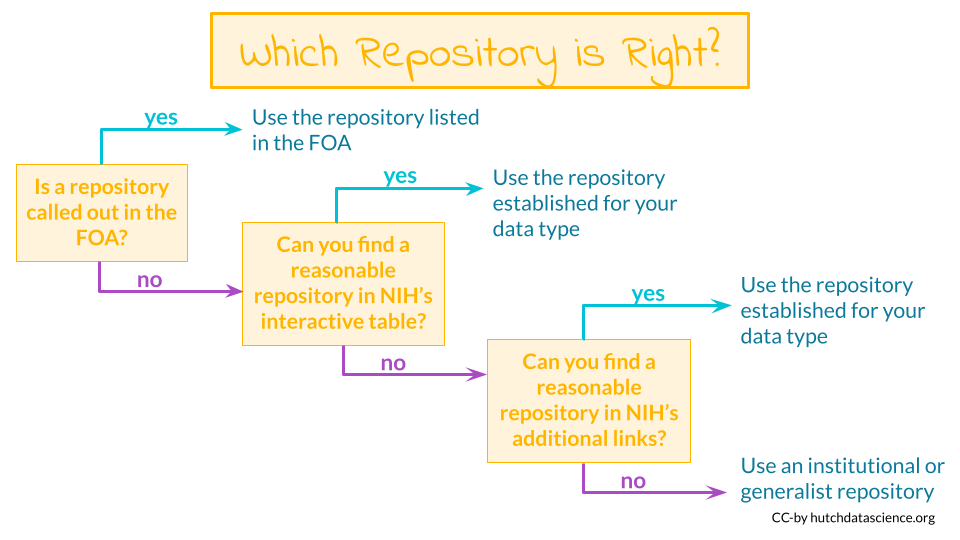Some programs or solicitations may specify a repository for sharing and archiving data. In cases where a repository is not specified, see any of the below resources for lists of repositories that are acceptable for data sharing in certain contexts.
Note: The University of New Mexico is a member institution of the Dryad data repository. Dryad is included in the list of acceptable generalist repositories.

The above image is from the Fred Hutch Cancer Center Data Science Lab course, "NIH Data Management and Sharing Policy," Chapter 4: "Data Management and Storage." https://hutchdatascience.org/NIH_Data_Sharing/data-management-and-storage.html
NIH strongly encourages the use of established repositories to the extent possible for preserving and sharing scientific data. From the NIH website:
Help with NIH DMS plans is available from multiple research support services.